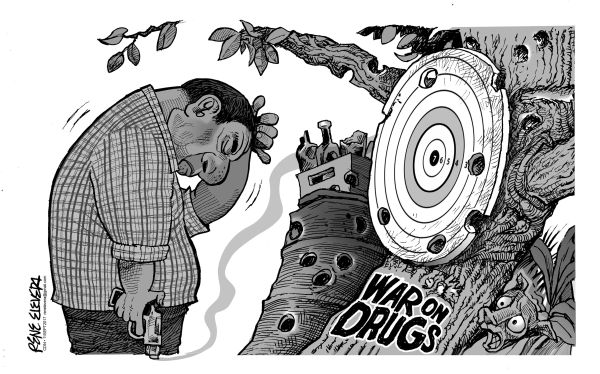
The Duterte administration may have some reason to believe there are “malignant forces at work” to undermine it since the three teenage victims were killed barely days apart.
Kian Loyd delos Santos and Carl Angelo Arnaiz, both from Caloocan City, and Reynaldo de Guzman, whose remains were found in a river in Nueva Ecija barely 24 hours after he was killed, were ordinary boys whose drug ties have never been substantiated by the police.
The grisly and heinous nature of their murders have challenged both public perception and whatever sense of moral outrage the administration seeks to fuel their relentless campaign against illegal drug dealers.
While President Duterte managed to soothe the feelings of loss and anger felt by Kian’s parents towards the police by assuring that justice will be served, the deaths of Carl Angelo and Reynaldo simply cannot be ignored.
Long before their deaths, President Duterte even warned that the drug syndicates will employ every ace up their sleeves, including executing rival drug dealers and passing it off as being the handiwork of police posing as masked vigilantes in order to discredit them.
But granting that, the government still has to prove that the deaths of Kian, Carl Angelo and Reynaldo were not the work of overzealous police officers who were spurred on by President Duterte’s speeches to kill those who resist arrest even if there are other ways to render them inutile in order to arrest them, not execute them.
We cannot deny that these “malignant forces at work” have vast resources at their disposal and that they will resist considering that they have been hammered relentlessly in the past year.
But while most Filipinos may have looked the other way when bodies began to be found in a lot of the country’s streets and even cheered when local officials with drug ties wound up dead in prison or at the sanctity of their homes, spilling the blood of underaged suspects is another thing.
What makes President Duterte’s claim even more questionable is a recent order to the Philippine National Police not to disclose the reports of their anti-drug operations to the Commission on Human Rights (CHR).
While it is known that the President isn’t very fond of the CHR, and his allies in Congress had even threatened a one-peso budget for the embattled agency, an examination and assessment of the reports would have offset whatever criticism his administration may be facing in relation to his war on illegal drugs.
It would also show to the Filipinos the actual bigger picture of how the Duterte administration is conducting its campaign including whether there are executions rather than shootouts and if more youths like Kian and Carl have died by the wayside.
Instead, the Duterte administration would rather keep their war on drugs under wraps, free from public scrutiny.